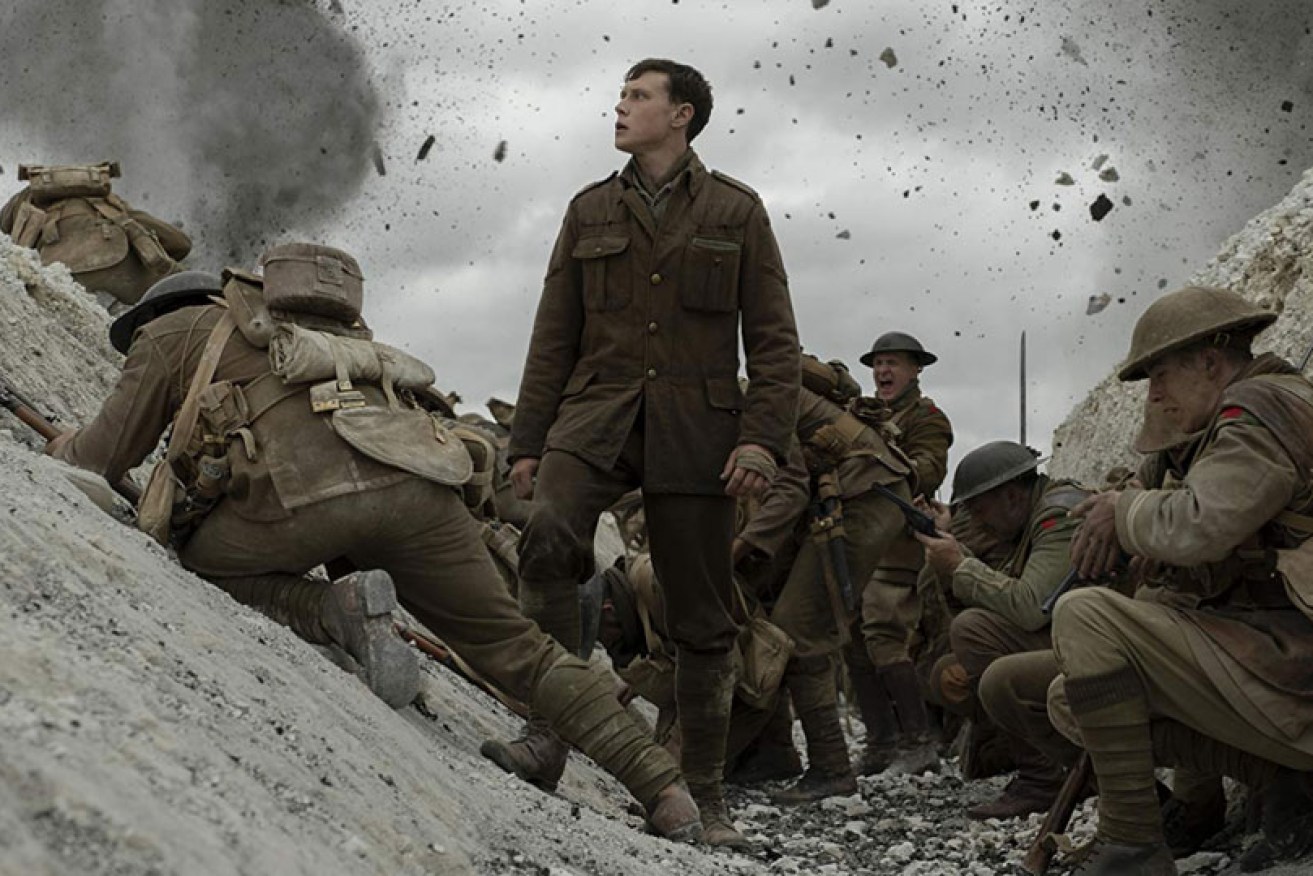WW1 digger hails heroic ‘stout-hearted’ runners in 1917 letter

George MacKay is heroic as a young soldier on a mission in Sam Mendes' epic 1917. Photo: DreamWorks Pictures
More than a century before their bravery was recognised on the big screen, a young WWI digger wrote that only the most stout hearted soldiers were chosen to be runners.
On January 9, 1917, Sergeant Ulric Walsh’s letter home to Australia was published, lauding the runners whose exploits are honoured in the Golden Globe winning film 1917.
The film fittingly had its Australian premiere this week, 102 years to the day after Sergeant Walsh’s letter appeared in Kalgoorlie’s Western Argus newspaper.
The WWI epic follows two British runners on their journey through the trench-pocked field and mud of the Western Front.
Runners were soldiers who carried orders between allied troops in the trenches and an army’s commanding officers at the back of the field of war.
Nominated for 9 #EEBAFTAs, including Best Film and Best Director, and winner of the Golden Globe for Best Motion Picture – Drama and Best Director, #1917Film is in cinemas, IMAX & 4DX now. pic.twitter.com/0mc29dAnLt
— 1917 (@1917FilmUK) January 10, 2020
In his letter from his Horton War Hospital bed in England, Seargent Walsh writes they were picked from only the most reliable, “stout hearted” men.
“Naturally the runner must be an athlete,” the 20-year-old wrote, capable of navigating a maze of trenches while under a “barrage of fire” and poisonous gas.
“The risks are so great that the message is generally duplicated and the men sent in couples so that if one is hit the other may get through,” the letter reads.

Life on the Western Front during WW1. Photo: Getty
And, as in the film, “the fate of a regiment” could depend on receiving the message.
“The distance to travel may be a mile or more, and during the whole time his nerves are strained to the utmost pitch, and his thoughts are bent on reaching his destination and in avoiding danger.”

Acting Sergeant Ulric Walsh, (pictured 7th from left second row), as part of the 5th Light Trench Mortar Battery in WW1. Photo: Australian War Memorial
Sergeant Walsh, who enlisted to fight in 1915, compared the acts of heroism by runners to those performed by messengers for Caesar and Alexander the Great.
“… but all fade into insignificance when compared to the deeds of the messenger of modern warfare – the runner,” he said.
Sergeant Walsh would go on to become an officer and, not long after writing his letter, defended his men in an act of bravery on the Western Front for which he was awarded the Military Cross.
-AAP








